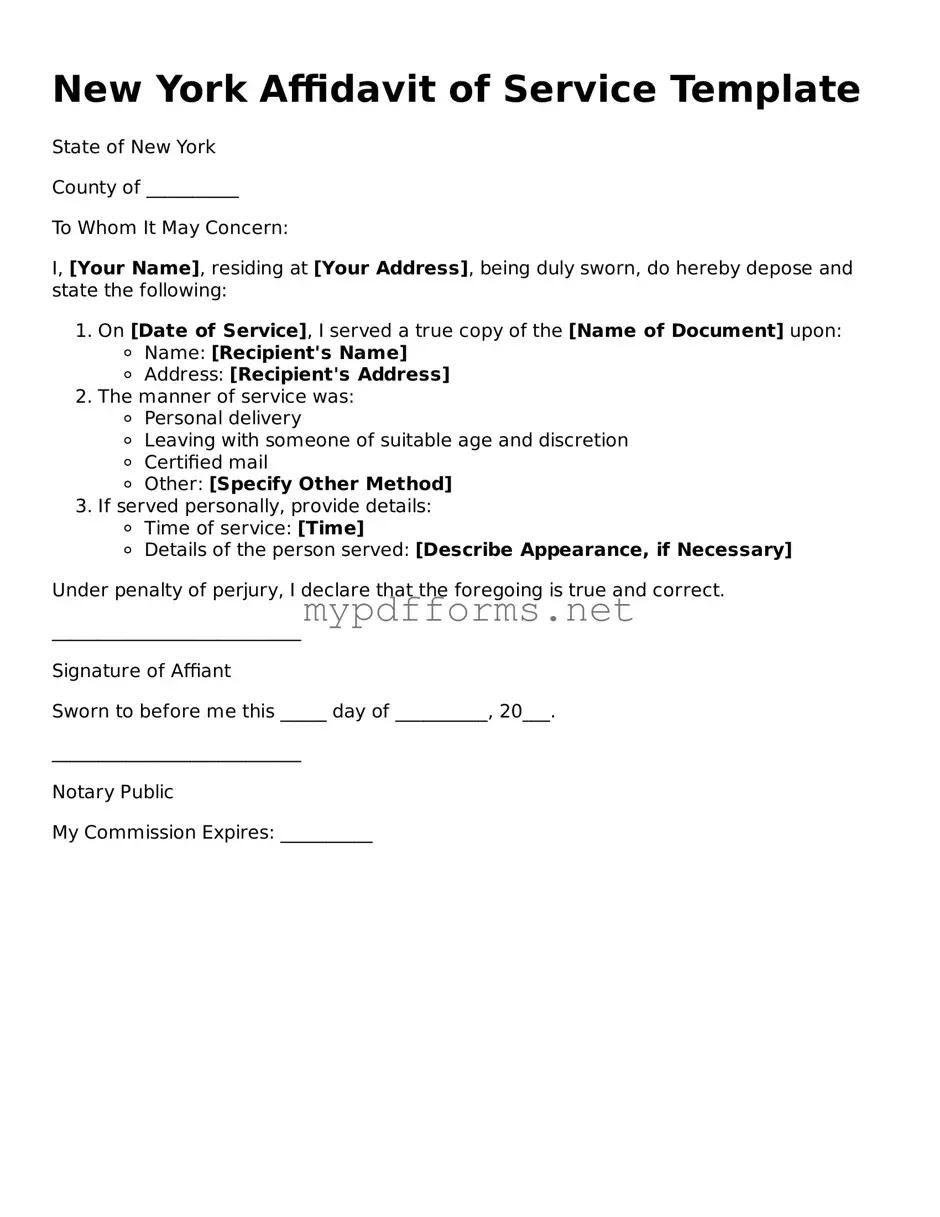Attorney-Verified Affidavit of Service Document for New York
The New York Affidavit of Service form is a legal document that confirms a person has been properly served with court papers. This form is essential in ensuring that all parties involved in a legal case are informed and have the opportunity to respond. Ready to get started? Fill out the form by clicking the button below.
Modify Document Here

Attorney-Verified Affidavit of Service Document for New York
Modify Document Here

Modify Document Here
or
⇓ PDF
Need to check this off quickly?
Edit and complete Affidavit of Service online in just a few steps.